Senator Kamala Harris greets supporters along the rope line after a campaign rally. She hugs admirers, poses for selfies and warmly thanks person after person for attending.
Watching on her TV, Renata Espinoza stares and shakes her head.
“Is it the real you?” Espinoza asks of the candidate on screen. “Or is it not? We never saw that,” she said. “It upsets me because I see her doing that now, and I wish she would have done that back then.”
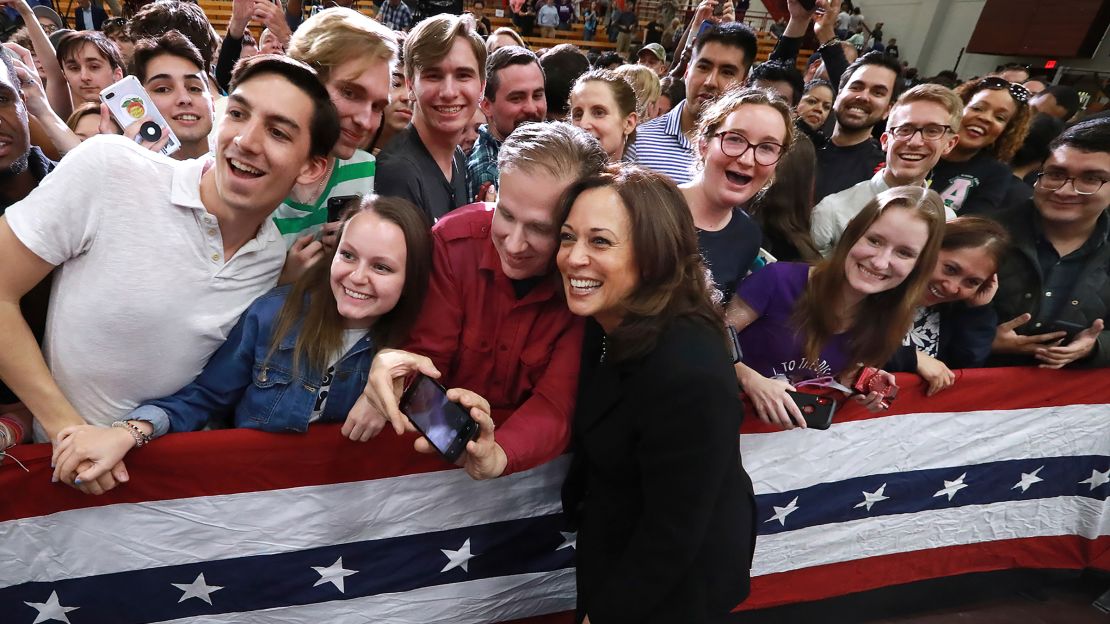
The “back then” is 2004, when Espinoza, her husband Isaac and Harris were all part of San Francisco’s extended law and order family - Isaac Espinoza as a police officer and Harris as the city’s newly elected district attorney.
It was when Renata Espinoza became a widow and when the prosecutors’ mantra of standing “for the people” suddenly became for her, and her murdered husband.
For Harris, she was on a crucial early rung of the professional and political ladder that would take her to today, becoming a top-tier candidate for the Democratic nomination for President of the United States.
Her time as a prosecutor helped to shape some of the policies on which she’s now running as well as to give fodder to both her supporters and critics.
One case is her attitude to the death penalty. While she’s been consistent in her personal opposition to capital punishment, professionally she has both refused to seek it AND, as California attorney general, acted to keep it available. Her actions have upset both people for and against the death penalty, though Harris has always stood by her decisions.
Renata Espinoza has always declined to speak on camera. But, after 15 years, she agreed to a CNN interview because of Harris’ presidential run.
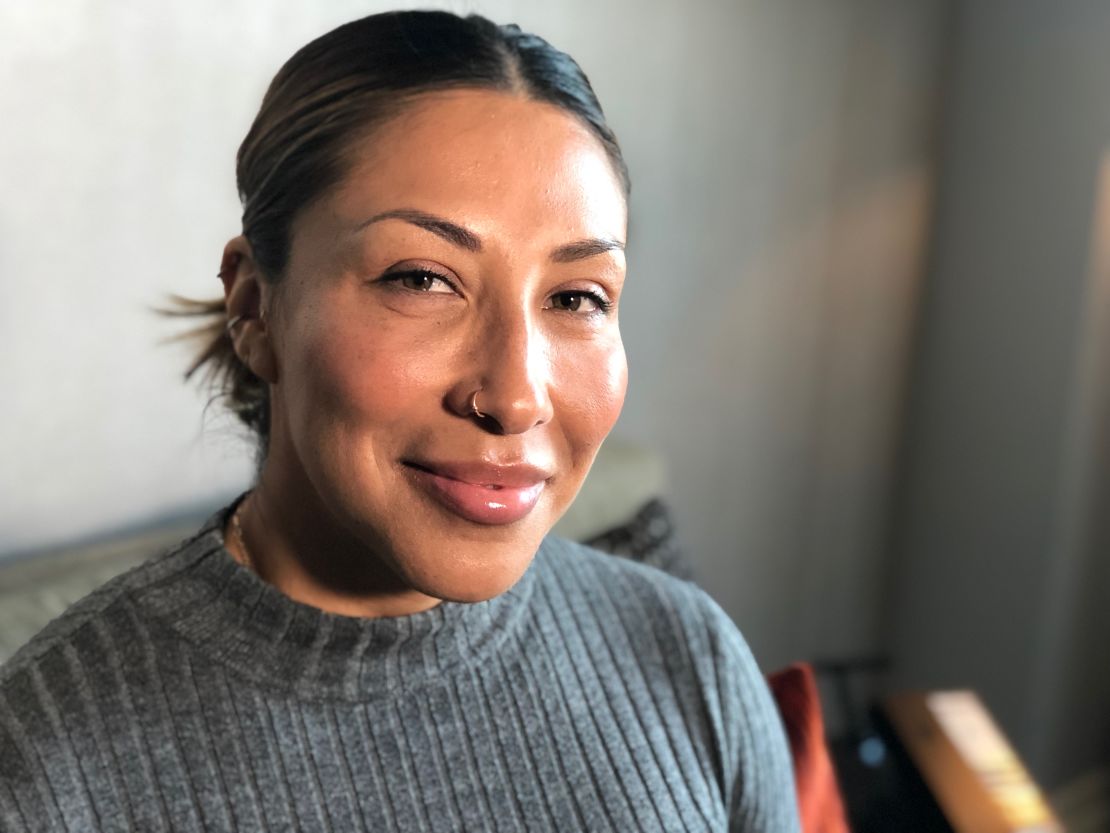
“I want people to know who she is,” Espinoza said, “how she was back then and how her actions affected us. I want people to know everything about her, even in the past, before they vote for her. And I want them to hear Isaac’s story.”
Death of an officer
It was the day before Easter in 2004. Officer Isaac Espinoza, 29, was called in on overtime, to work the Saturday shift. He was looking forward to getting off that night so he could rest before Easter services with his wife and 3-year-old daughter. Espinoza worked as a plainclothes officer in the Bayview District of San Francisco. Bayview struggled with poverty and gang wars – but it was a neighborhood Espinoza was drawn to, requesting it as an assignment because he felt he made the most impact as a cop there.
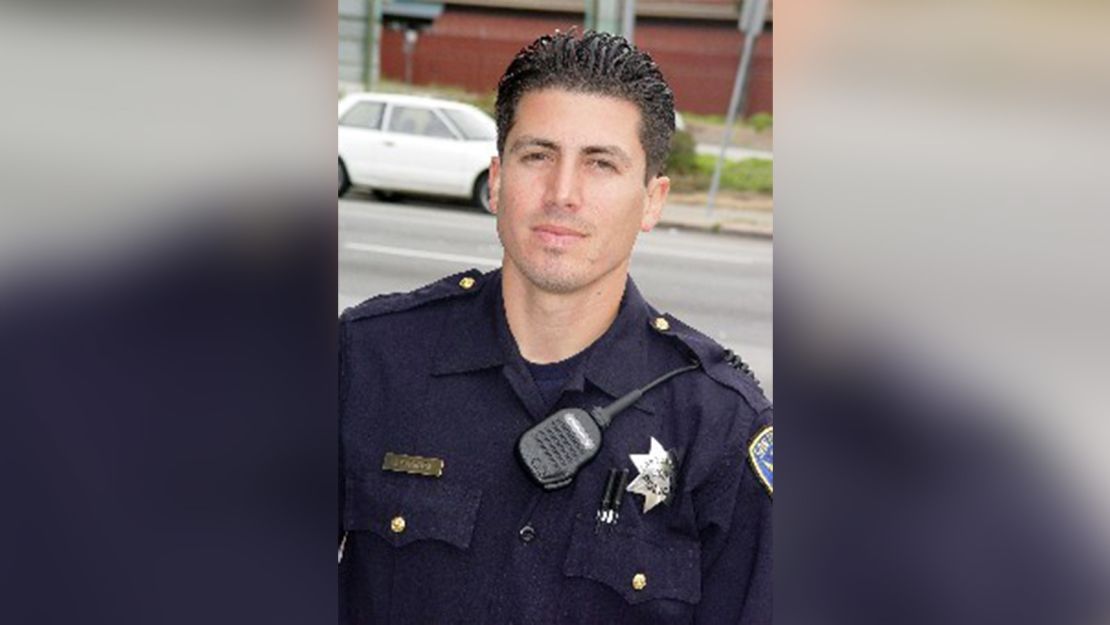
On that night, April 10, Espinoza and his partner saw a man who appeared to be hiding a weapon as he walked down the street. Espinoza got out of their unmarked car and approached him, identifying himself as a police officer, according to court testimony. The man, 21-year-old David Hill, turned to face him, about a dozen feet away. Then he took out an AK-47 assault rifle and fired about a dozen rounds.
“I had just talked to Isaac maybe about 30 to 40 minutes before,” recalled Renata Espinoza, her voice soft and shy, sometimes barely above a whisper. “He had told me to stay up because he was coming home.”
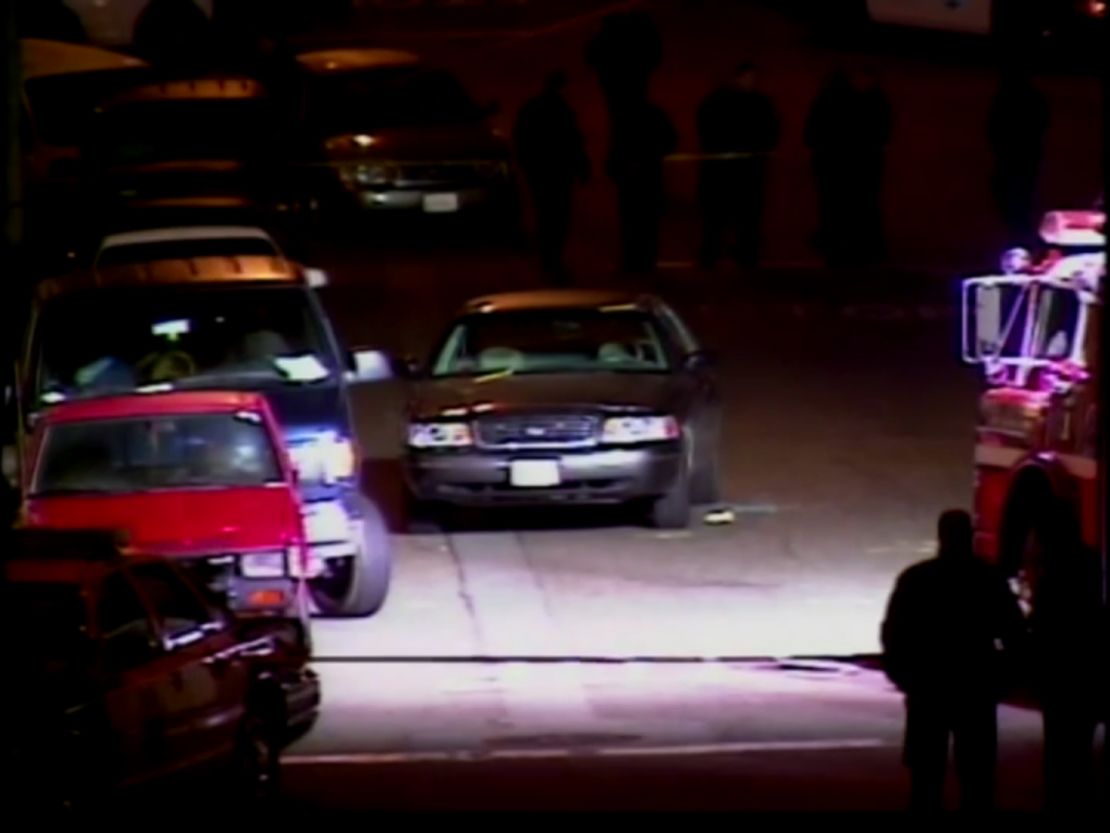
Instead, she was taken to him – sped in a police vehicle to San Francisco General Hospital by one of her husband’s fellow officers.
“Is he alive?” she asked.
“He’s fine, he’s alive,” he reassured her.
But her Isaac had been shot.
When they pulled into the hospital, a sea of police officers met Espinoza. None of them would look at her.
“Can I see him? Can I see him?” Espinoza pleaded.
The officers searched for their captain.
Espinoza doesn’t remember everything she said that night – she just knew that then, like every night since she was 16 years old, Isaac was the center of her life. He had to be OK.
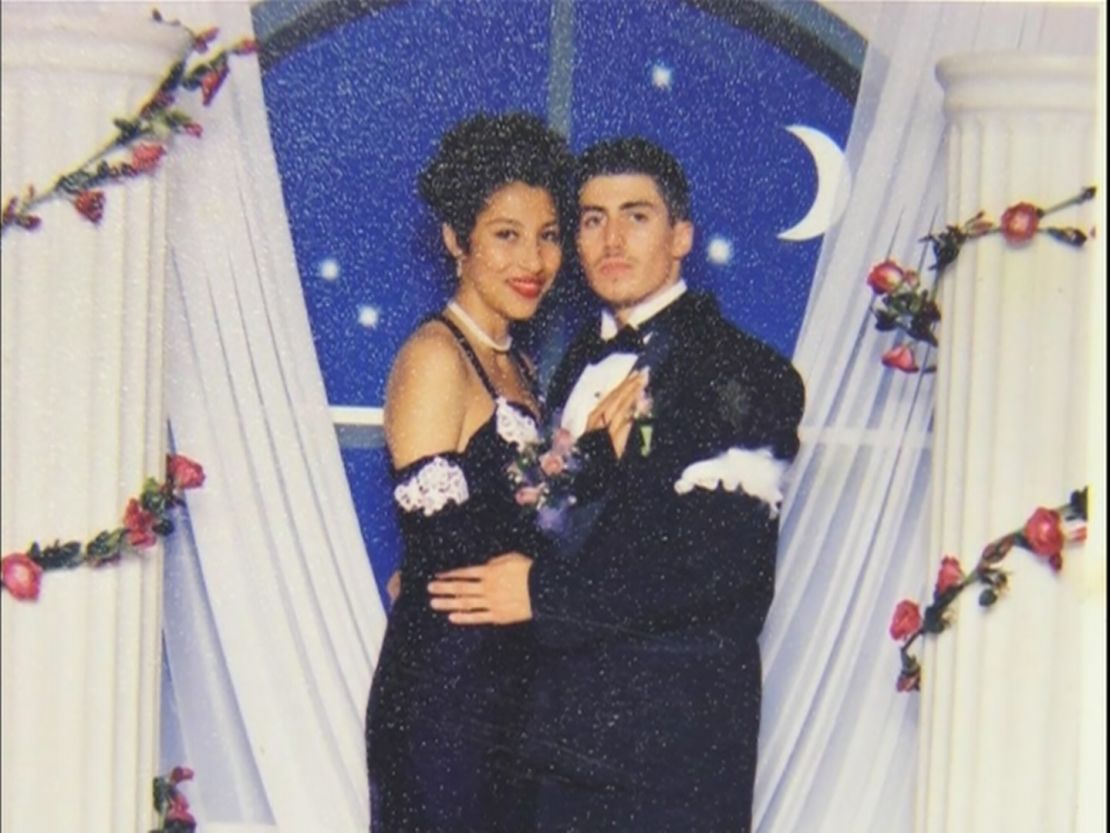
The pair were high school sweethearts. They met when she was a sophomore and he was a senior – he was the loud jokester at school and she, the shy daughter of a pastor. Renata’s father, conservative and faithful, forbade her from going out on solo dates. So instead, the young couple would take all of Renata’s siblings along, to spend time with each other without breaking the rule.
Isaac Espinoza knew two things at an early age, his wife said – he would one day marry her and he would become a police officer.
He would accomplish both. A few years out of high school, Renata married Isaac. And as soon as he was age-eligible, he joined the police academy. Then after trying for several years, the couple had a daughter, Isabella.
Being a father, a husband, a cop and a Christian – that’s what mattered to Isaac Espinoza.
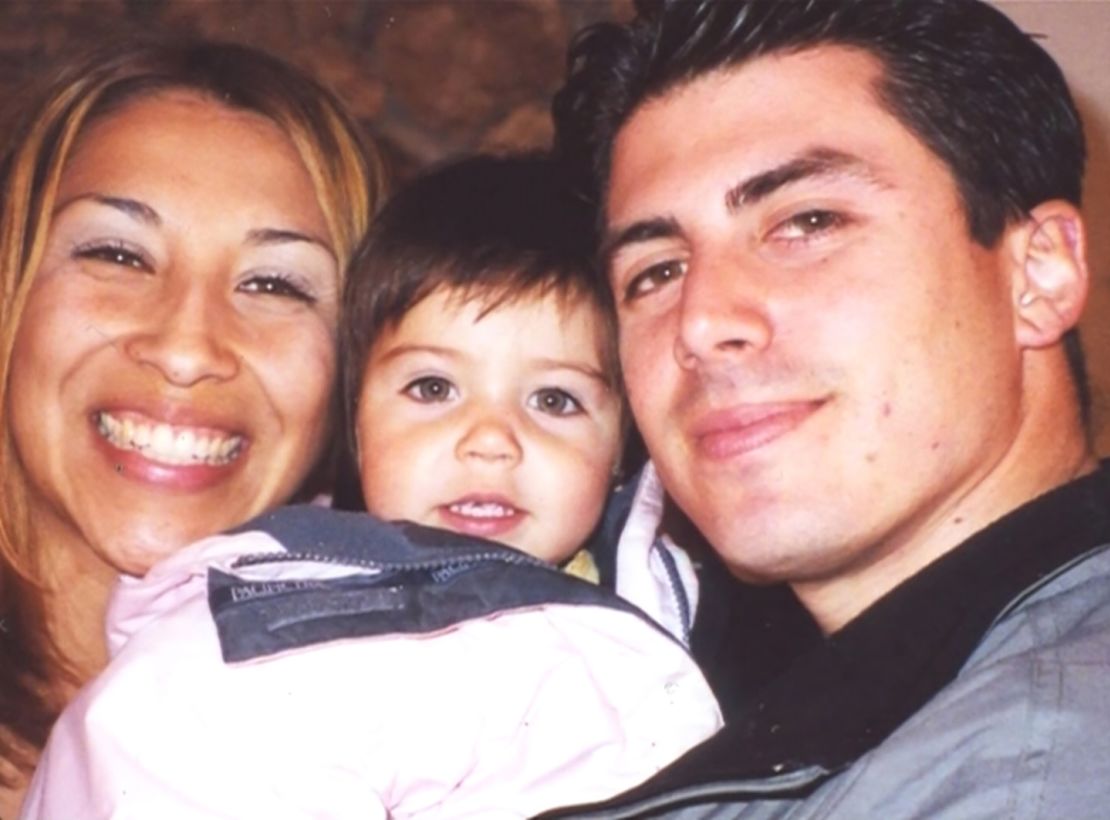
Espinoza’s captain approached Renata. He handed her Isaac’s star.
“I remember I walked into this room and he still had blood here,” said Renata Espinoza, pointing to her hip, her voice breaking as she remembered. She paused, the tears she’d held back now falling. “He was laying there with his eyes closed and I saw the blood here. And I walk over to him I just said, ‘wake up.’”
Renata’s pastor father was in the room too. She turned to him and pleaded. “Can you just pray over him?” she cried in desperation. “So he can wake up.”
The news conference
Gary Delagnes was also at the hospital that night, as president of the San Francisco Police Officers Association. Isaac Espinoza was the union representative for the Bayview station and Delagnes knew him and his young family. Afterwards, he couldn’t get the image of the young officer’s body – struck by bullets from the rifle – out of his mind. It had been 10 years since a San Francisco officer had been gunned down in the line of duty.
“A day or two after the death, I got a call from her,” he remembered. The caller was new District Attorney Harris. Delagnes was also relatively new as union president and the two had a somewhat cool professional relationship because the police union had endorsed another candidate. But Delagnes said both recognized the need to work together.
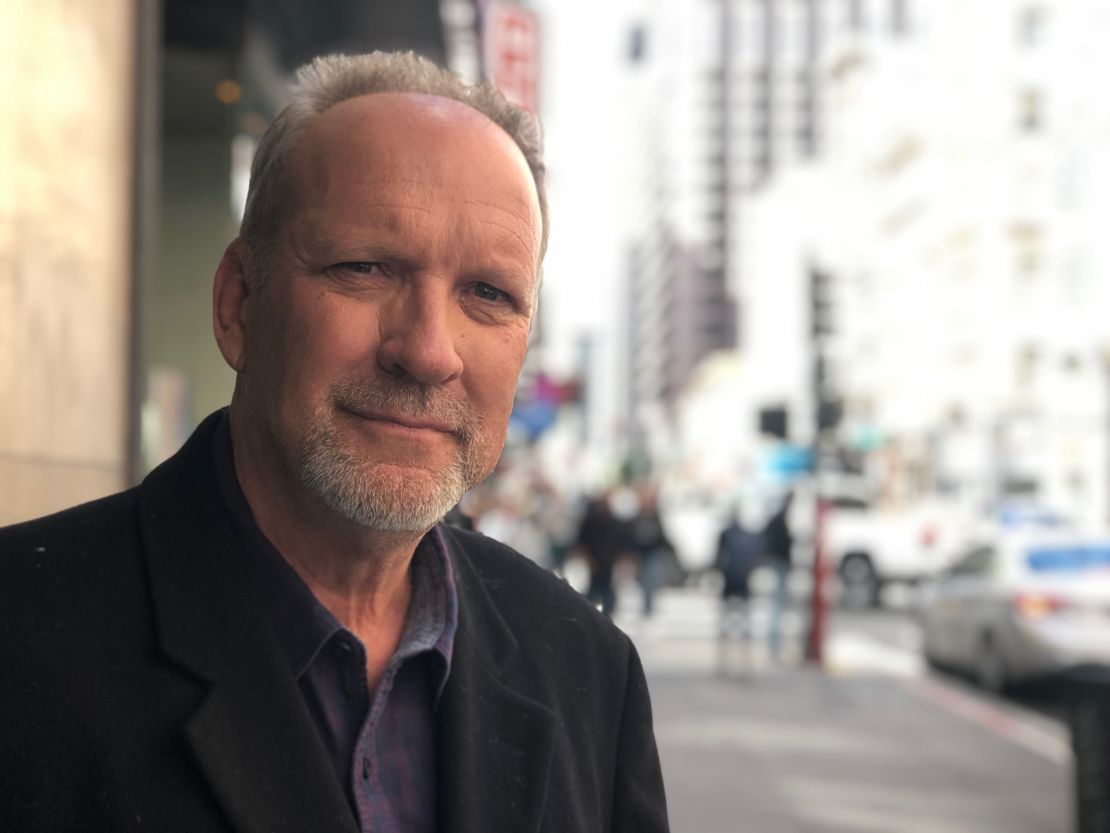
He knew there would be areas where they would have to agree to disagree – as on the death penalty. Harris had pledged in her campaign for DA not to seek the death penalty – a stance generally backed by Bay Area voters and juries, and also taken by the other two candidates. Delagnes, a practicing Catholic, himself had mixed feelings. He would publicly both support and reject the death penalty in his career.
On April 13, 2004, three days after Isaac Espinoza was shot to death, a suspect was in custody and Delagnes agreed to join Harris at a news conference.
“In San Francisco, it is the will, I believe, of a majority of people that the most severe crimes be met with the most severe consequences,” Harris told reporters and camera crews. “And that life without the possibility of parole is a severe consequence.”
“I’m standing there and I’m going, ‘Oh my God,’” recalled Delagnes, who stood stoically next to the DA, then 39, as she spoke. “The kid’s not even in the ground yet. You’re thinking to yourself, OK, is she sorry that this kid died or is this just a political opportunity? Is this just an opportunity for her to double down on the fact she’s not going to pursue the death penalty?”
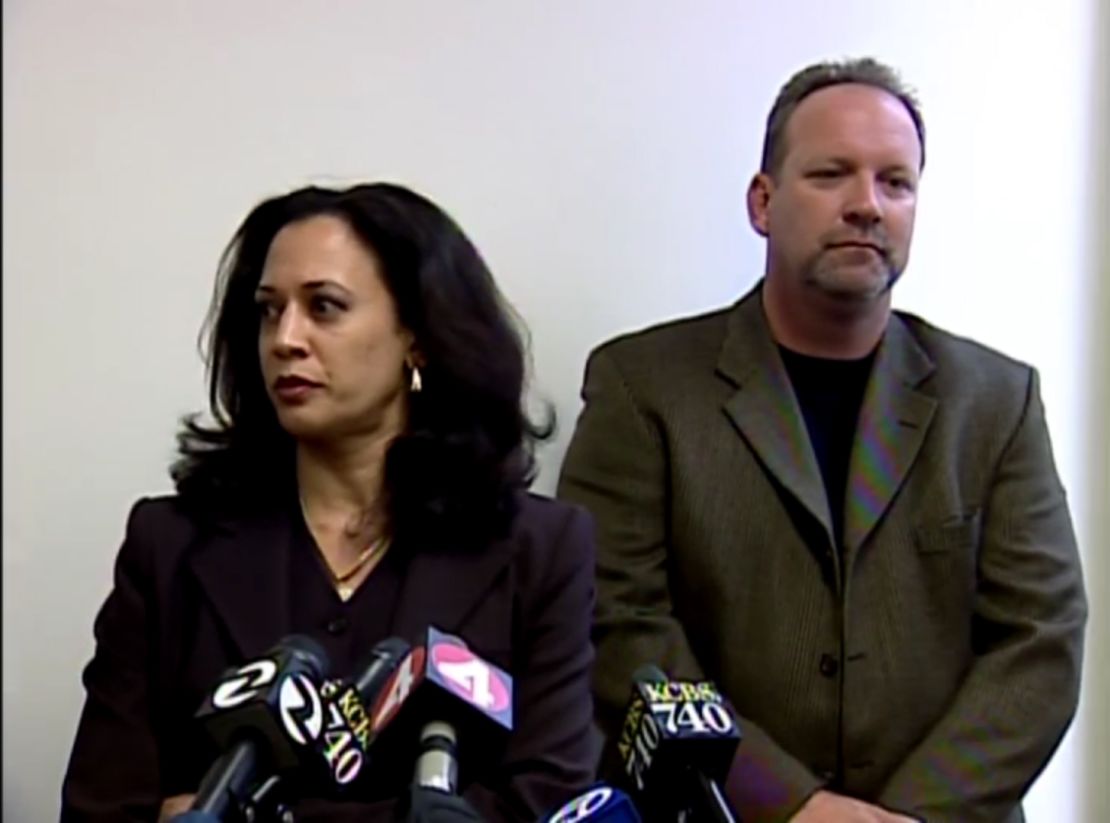
Debbie Mesloh, a longtime Harris adviser who was then communications director for the DA’s office, recalled the hours and days after Espinoza’s murder as emotionally wrought for the new team.
Within 48 hours of Espinoza’s murder, Mesloh remembers reporters asking for comment, saying the police officers’ union was calling for the death penalty. But San Francisco juries rarely, if ever, handed down the death penalty and the suspect was just 21, she told CNN.
“We were working in a full attempt to be honest and provide clarity on what was a difficult and emotionally charged situation,” said Mesloh. “As communications director, I recommended we provide details about the case as soon as possible.”
In the shock of becoming a 27-year-old widow with a toddler to raise, Renata Espinoza’s memory is inexact about the immediate days following the murder. But she’s crystal clear that the news conference was when she first heard about Harris’ decision to not seek the death penalty.
“She did not call me,” recounted Espinoza. “I don’t understand why she went on camera to say that without talking to the family. It’s like, you can’t even wait till he’s buried?”
Newfound anger was layered upon her grief.
“I felt like she had just taken something from us,” said Espinoza. “She had just taken justice from us. From Isaac. She was only thinking of herself. I couldn’t understand why. I was in disbelief that she had gone on and already made her decision to not seek the death penalty for my husband.”
Political ramifications
The political blowback for Harris came swiftly, publicly and out of the blue at Espinoza’s funeral, exacted by the most powerful elected official in attendance.
Hundreds of police officers, state and city officials filled the church pews for the fallen officer, with his young widow and toddler seated near the casket.
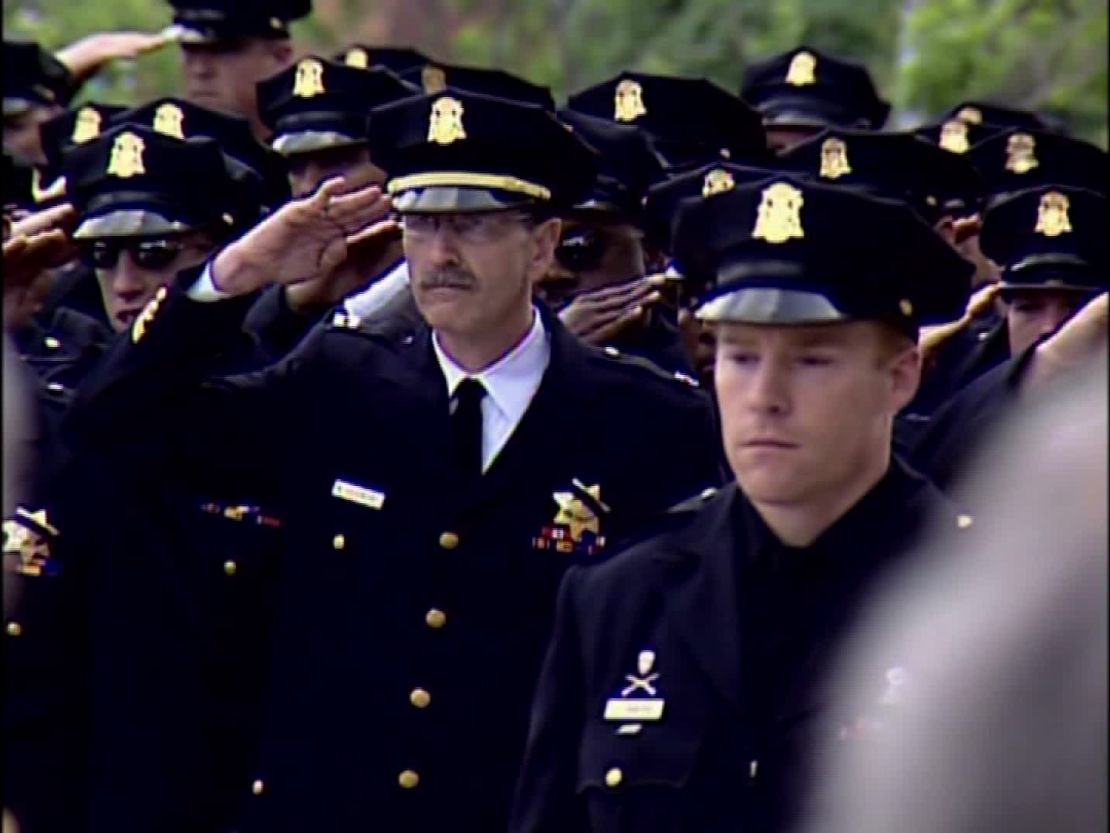
US Sen. Dianne Feinstein, in the middle of a fight in the Senate to reauthorize her assault weapons ban, had been invited to give a eulogy. In 2004, Feinstein was a supporter of the death penalty, a position she would later change. But as she stepped before the grieving crowd, Feinstein made clear her sentiments on that day.
She parted from her prepared remarks and, while not using her name, blasted the new district attorney. “This is not only the definition of tragedy, it’s the special circumstance called for by the death penalty law,” she said.
Renata Espinoza remembers the din of chaos after Feinstein’s words – then the standing ovation by hundreds of rank-and-file officers as they turned to Harris.
Delagnes, who was also at the funeral, keeps a grudging respect for Harris. “It would have been very easy for her to say, ‘Hey, I’m against the death penalty but this guy killed a cop and I’m going to change my mind on this.’ There’s something to be said for the fact that she remained consistent.”
Nevertheless, the San Francisco Police Officers Association never endorsed Harris in any of her future political runs.
Harris’ adviser Mesloh said the funeral frayed the relationship between the DA’s office and the police department. “Pronouncements at the church on the death penalty in this case sowed deep division and pain within San Francisco law enforcement and between our office and the family,” she said. The DA’s victim services team was in contact with the police department, a department that closed ranks around the family.
The focus inside the DA’s office turned to getting the sentence of life in prison without parole, a challenge given the defendant’s age, Mesloh said. The assistant DA, Harry Dorfman, would try the case with the full resources of the office and directly engage with the family.
But the Espinoza family still wanted to talk to Harris.
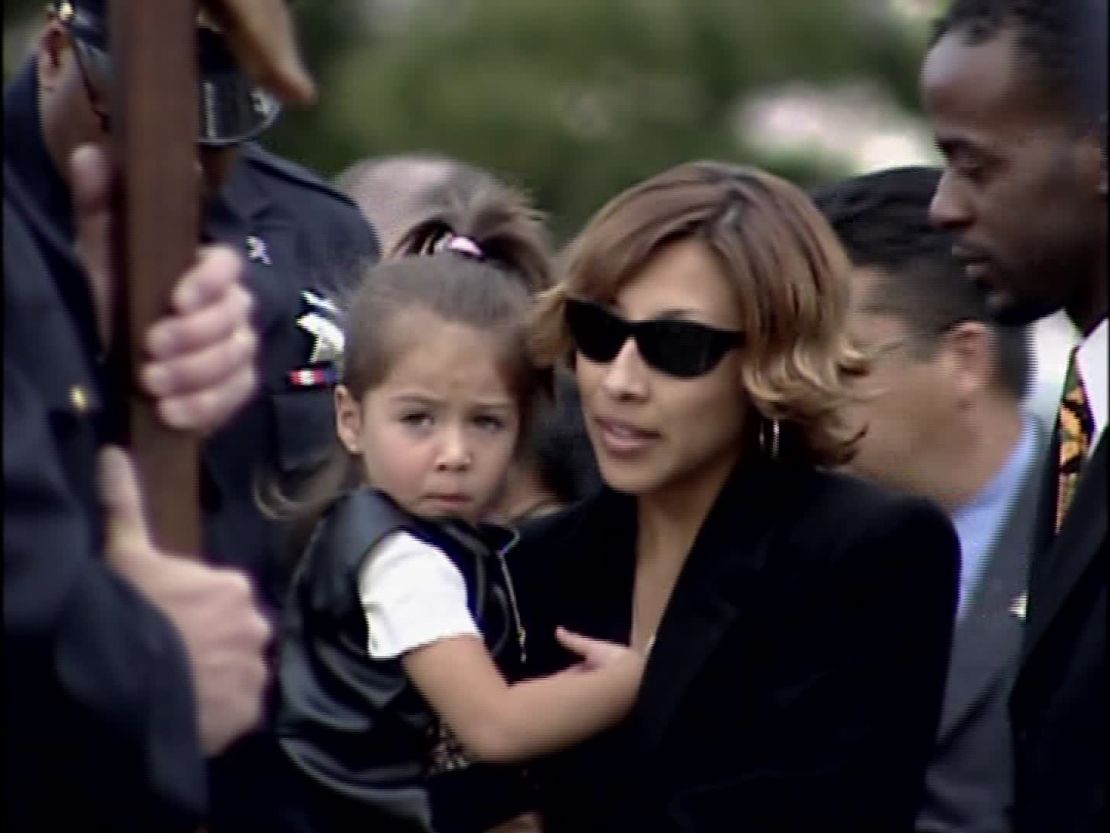
Renata Espinoza wrote a letter to Harris. Regina Espinoza, older sister to Isaac by just one year, kept expecting a response or phone call from the DA. “She never called,” Regina Espinoza said. “There was no consideration for Renata, my niece, my parents, me, or the officers. It was as if she didn’t care.”
Mesloh did not recall a letter arriving for Harris from the Espinoza family. She said, while she could not dispute the account, it would be uncharacteristic of Harris to not answer a letter. Harris has been known to painstakingly reply to many letters over her years in office, she added.
The Espinozas still did not understand why Harris wouldn’t seek the maximum punishment possible for Isaac’s death. In 1973, California passed a “special circumstances” law, making the murderer of a police officer eligible for the death penalty.
The Espinozas knew the immediate past showed the death penalty as a punishment might be near impossible, but an accused cop killer had not gone on trial in San Francisco for decades.
Harris had laid out her opposition to the death penalty during her run for DA, saying there were a multitude of systemic flaws – including the inequity of its application based on a defendant’s race and income, and the cost to taxpayers of keeping prisoners on death row.
On April 23 – 13 days after Espinoza’s death and just a week since his funeral – the San Francisco Chronicle ran an opinion article from Harris where she again laid out what she saw as problems with using the death penalty, and why she would not pursue it. She wrote, “For those who want this defendant put to death, let me say simply that there can be no exception to principle.”
Harris wrote that she wanted to honor her commitment to the people of San Francisco to oppose the death penalty. “The district attorney is charged with seeking justice, not vengeance.”
The Espinoza family clipped the piece and added it to the memorial album for Isaac. They hadn’t known about Harris’ opposition to the death penalty before the news conference, they said. Their confusion and anger grew, as a feeling that the DA was not seeking full justice for Isaac solidified.
The family says they asked the assistant DA to arrange a meeting with Harris, so they could make their pleas in person.
“I can’t remember exactly what she said,” Regina Espinoza told CNN. “But I remember there was no connection. We let her know how we felt. We didn’t walk away feeling better.”
Renata Espinoza recalled: “She never came over and said, ‘I’m sorry for your loss.’ Never. Nothing.” She wanted that human connection, even for a moment, she said. “I would have been able to hear her explanation directly and then we could have talked about it.”
In the months and then years that it took for the trial to lead to a conviction, Renata Espinoza said Harris never gave her that compassion she hoped for.
On the presidential campaign trail this month, Harris called Officer Espinoza’s case “an absolute tragedy,” and said her office “prosecuted that case with all the resources that we had.”
She did not answer directly when asked if she personally ever spoke with the Espinoza family, but said someone from her office did. “We reached out to the family. We always did. We did in that case as well and offered all of the support that our office was able to give the family.”
Asked whether she regrets not speaking to the family before announcing the death penalty would not be sought, Harris said, “I did not ask for permission to make my decision.”
She would not discuss the matter further with CNN, but last month Harris told the San Francisco Chronicle the question she’s reflected on is whether she should have waited until after Espinoza’s funeral to discuss punishment.
“Maybe it was a political novice mistake. I don’t know. Maybe it was the right thing to do but you got to take the heat for it,” the newspaper quoted her as saying.
Life in prison
“It took a lot of courage and integrity to make a campaign promise like that – and then keep it,” said David Hill, Espinoza’s killer and the key beneficiary of Harris’ decision not to seek the death penalty. “I’m forever grateful.”
Hill is now 36. He’s an inmate at the maximum-security California State Prison.
“I will spend the rest of my life in jail,” said Hill, matter of fact and without emotion. After he was found guilty of the murder of Espinoza and the attempted murder of his partner, a judge handed down two consecutive life sentences, one without the possibility of parole.
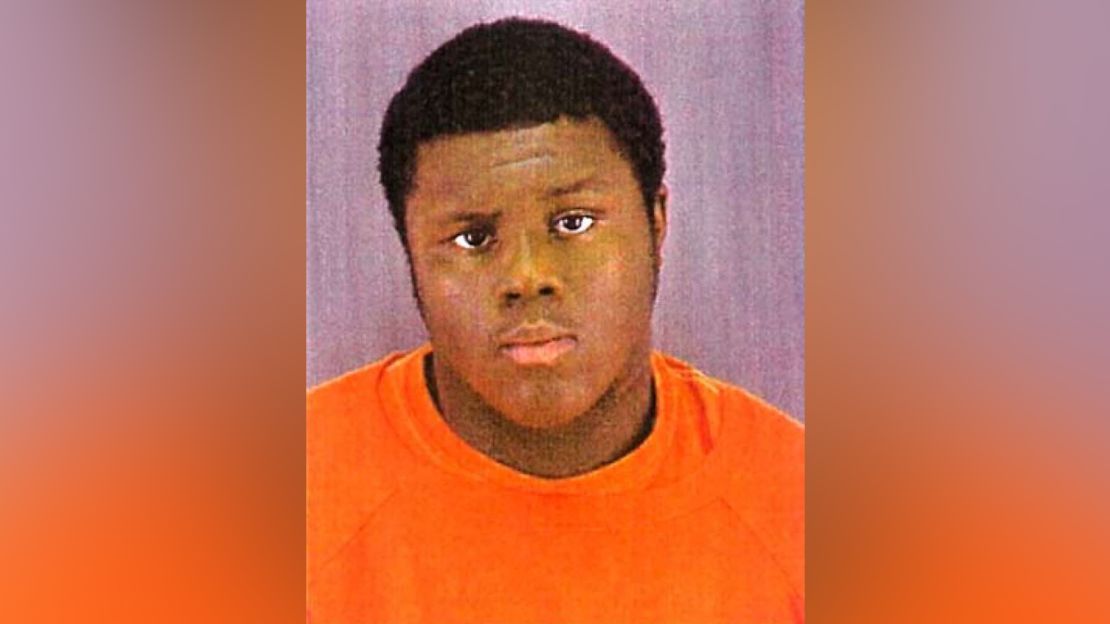
In a series of phone calls with CNN, Hill reflected on the 21-year-old gang member he once was, and how different he says he is today. Hill sounded upbeat and earnest, until he talked about the pain he unleashed on the Espinoza family.
“I am remorseful about the whole situation,” said Hill, pausing as he recalled his crime. “I’m deeply saddened. And I came to this feeling through the rehabilitation programs at the prison. They’ve helped me understand.”
When asked about Renata Espinoza, Hill said, “Sorry wouldn’t suffice.” He said he has not tried to send Espinoza any letter expressing his remorse in the last 15 years, but said he thinks often about how his actions led to so much loss for her.
“I know what she’s missing out on,” he said, talking about Espinoza raising a daughter without the man he killed.
“All those first moments,” said Hill, himself a father. “All that he’s missing out on, too.”
Hill has a set schedule in prison, a day that begins at 6 a.m. and ends before sundown. He takes a variety of classes – restorative justice, art, culture, creative writing and yoga. He has been the prison’s literacy clerk and is involved in the prison’s book club, where guests speak to inmates.
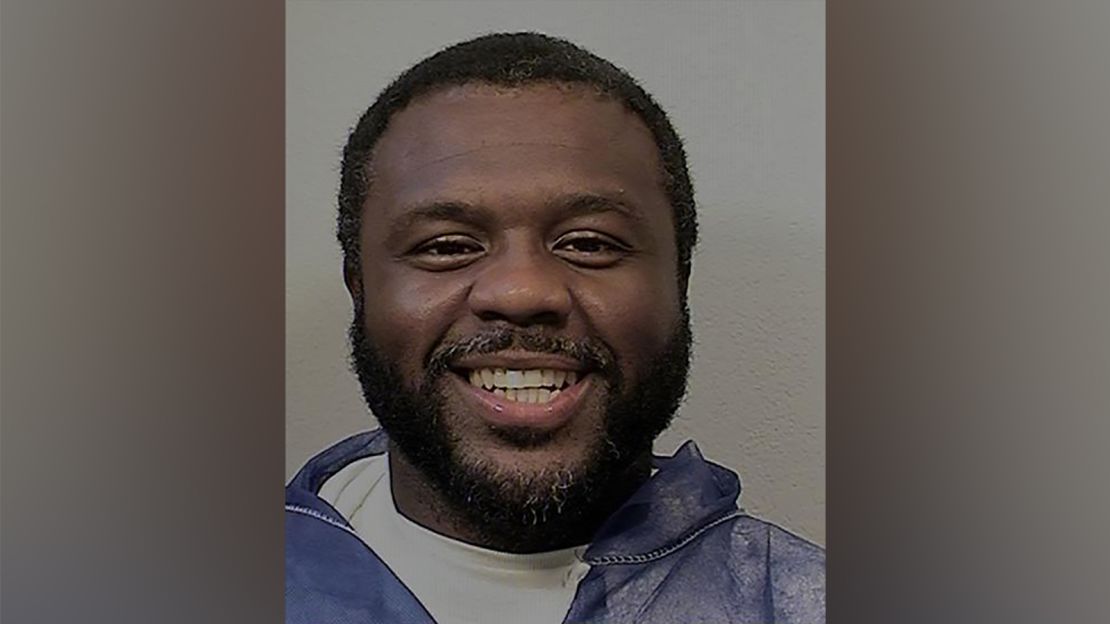
Hill said he’s been paying attention to Kamala Harris’ campaign for President and has heard her underscore her personal opposition to the death penalty. In his case, said Hill, not being sentenced to death changed his entire outlook, even though he knows he will die in jail. “There’s no specific day that I know I will die,” he said. “I’m not unredeemable.”
The other case
The clock was running for Professor Hadar Aviram.
“45 days,” she said to herself. “45.”
She clicked “start a petition” on the change.org website. She titled it, “Do Not Appeal Judge Carney’s Death Penalty Abolition Decision.” Aviram began typing a public plea, directing the petition to California Governor Jerry Brown and Attorney General Kamala Harris.
It was summer, 2014. US District Court Judge Cormac Carney had ruled California’s death penalty was unconstitutional, halting executions in the state.
He found that the long wait on death row before execution was itself cruel and unusual punishment. Anti-death penalty activists like Aviram may not have agreed with the judge’s reasoning, but still cheered the decision.
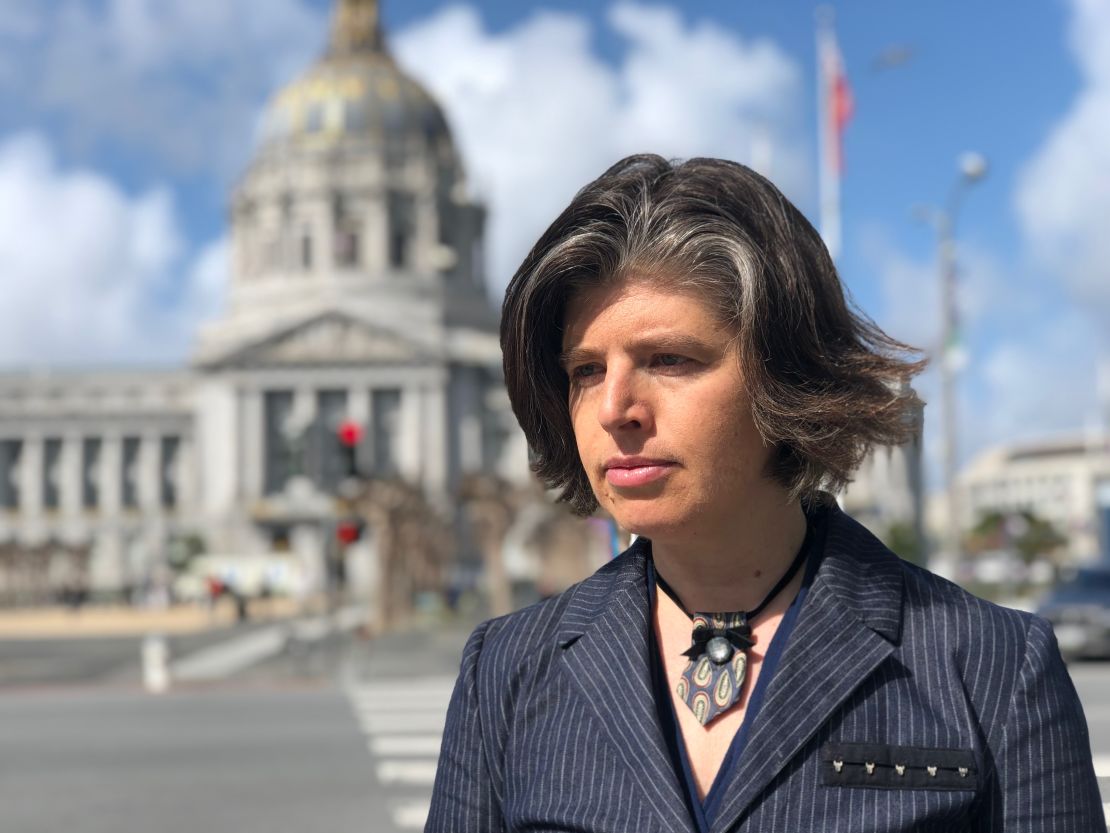
Two ballot propositions attempting to abolish the death penalty in California had failed but here was a new opportunity. If Harris didn’t file the appeal to the 9th Circuit Court of Appeals before the 45-day window closed, Aviram believed the decision by Judge Carney would become a launching pad to end the death penalty.
Aviram was hopeful that Harris, who became attorney general in 2011, would listen. “I knew that personally she was opposed to the death penalty and had never sought it as San Francisco DA,” said Aviram. “Basically, all I asked the attorney general to do was nothing.”
Aviram underscored her message to Harris by closing her petition with this: “I call upon Ms. Harris to do the right thing, as her office did in (Prop 8) and refrain from appealing a decision that she knows is right, prudent and just.”
Harris had refused to defend Proposition 8, the California voter-approved law that declared same-sex marriage unconstitutional. She and the governor believed the voter initiative infringed on the civil rights of same-sex couples. Their actions paved the way for the case to reach the Supreme Court, which later ruled in favor of allowing same sex couples to marry.
As the 45 days ticked down, Aviram thought she was right about Harris.
“So imagine our surprise when, a couple of days before the clock runs out, the attorney general decides to appeal the decision,” Aviram said. “It was an upsetting piece of news to receive.”
Soon after, Aviram said she got a call from an assistant to Harris who explained the appeal was being filed because the judge’s reasoning was flawed.
But Aviram saw Harris’ actions as “hardly consistent with her personal opposition to the death penalty.”
“You are not under any obligation to defend things that are morally unjust,” she told CNN. “If you truly believe that they’re morally unjust and you have an opportunity to take a stand, I think it’s an imperative to do so.”
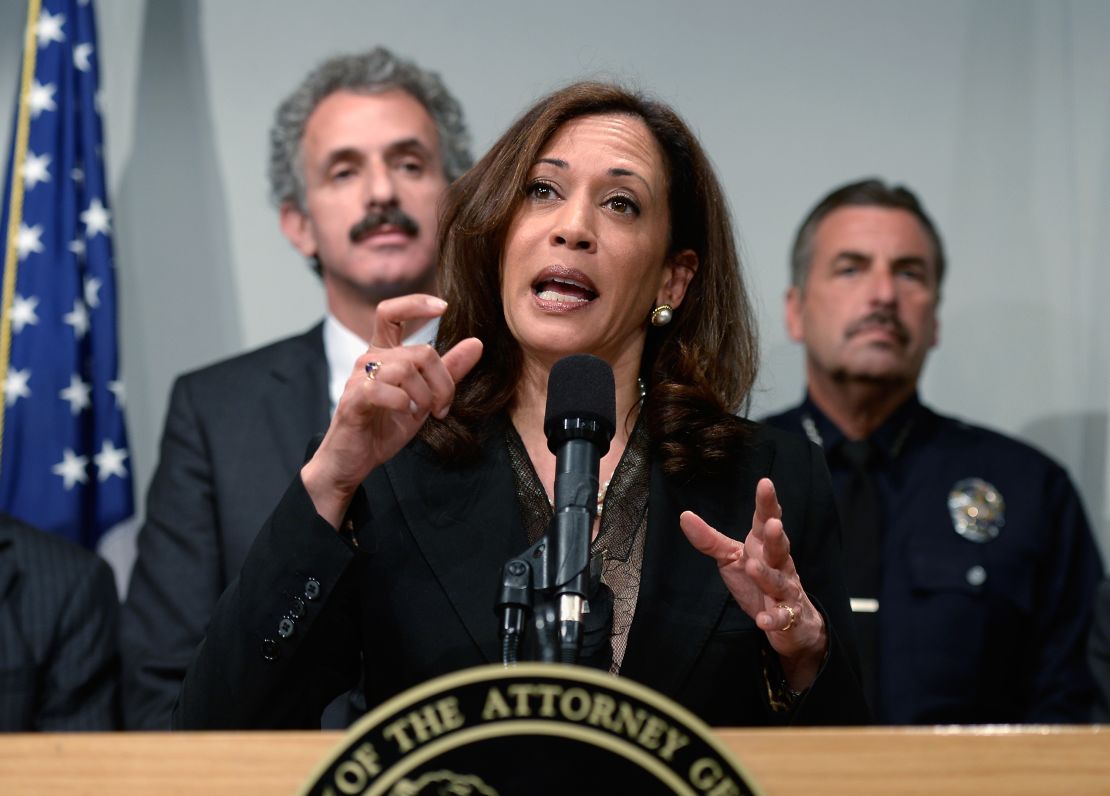
Harris’ campaign did not provide answers to CNN questions about the death penalty appeal.
While Harris’ filing of the appeal disappointed anti-death penalty advocates across California, the decision was praised by the Los Angeles Times Editorial Board as an appropriate one for the attorney general, “putting professional responsibility over personal politics.” But the newspaper also cited Harris’ inconsistency in not supporting Proposition 8. “… Harris’ response to the two cases suggests a willingness to pick and choose the limits of professional obligation.”
The 9th Circuit Court of Appeals agreed with the attorney general’s argument and overturned the lower court ruling. The death penalty was once again part of California’s penal system. Until this year.
In March, California’s new Governor Gavin Newsom signed an executive order putting a moratorium on the state’s death penalty, calling it “ineffective, irreversible and immoral.” Under Newsom’s order, all 737 inmates on death row were granted reprieves.
It’s a decision Presidential candidate Harris immediately hailed. In a statement she said, “I applaud Governor Newsom for his decision to put a moratorium on this deeply flawed system of capital punishment in California.”
Aviram has examined Harris’ law enforcement career and calls her a progressive prosecutor, but still criticizes her action on the death penalty appeal.
“The brave thing is not so much to support the person who does the revolutionary thing. The brave thing is to actually step up and do the revolutionary thing,” she said.
A full picture
For Renata Espinoza, the appeal over the death penalty added to her confusion about Harris. “It feels like, why are you changing your mind now? Why couldn’t you change your mind back then and put your feelings aside?”
Espinoza told CNN she agreed to an interview now for two reasons.

The first is for voters to have a full picture of the candidate and her humanity. “You’re trying to be President of the United States. That’s a lot. Are you going to show compassion? Are you going to be ‘for the people’? Or are you going to be for yourself?” she asks of the candidate, referencing her ‘for the people’ slogan.
The second, and more important, was for Isaac. He was the brave and loud one in their marriage, Espinoza said, and she preferred to let him do the talking. But he can’t talk now.
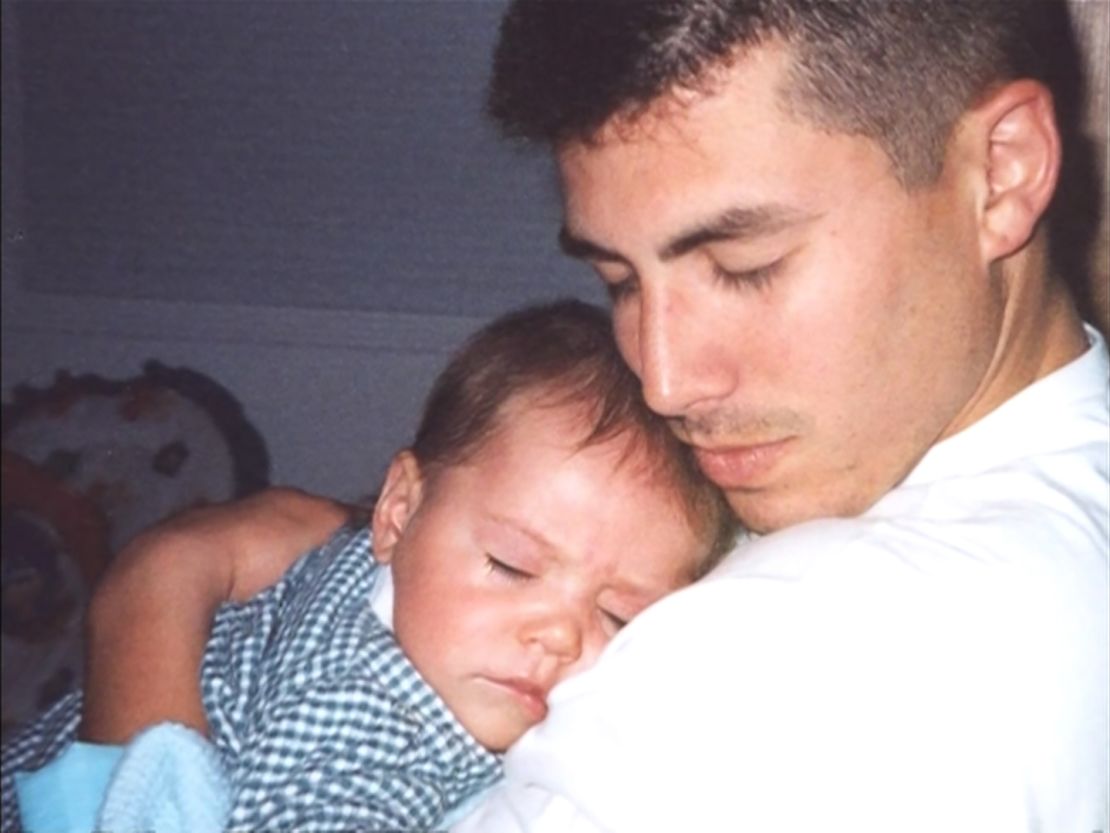
“He just believed in fairness,” said Espinoza. “The way things went down with her, that wasn’t fair. He always fought for the little guy and he loved doing it. With us, she was careless. And now you’re running for President. I don’t think her actions back then are those Isaac would approve of.”

















